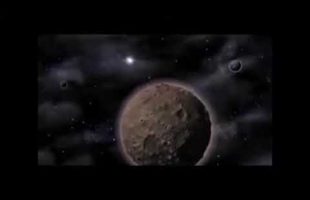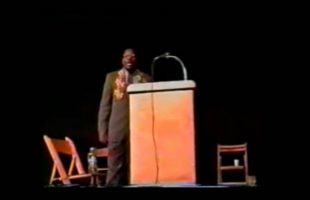However, not many people outside China know the story of Hong Xiuquan, the charismatic leader of the Taiping Rebellion. Eighty-some years before Hitler took his frustration out on the world, Hong Xiuquan took out his frustration and resentment on the Chinese people. Taking the famous state civil service exam three times and failing each time in his attempt to secure a life-long position of respect and security, Hong, like Hitler at the end of WWI, had a vision or a dream which he was convinced meant he was to lead China to a new “golden age.”
Hong must have been quite charismatic and able to convey his beliefs well, for not long after, his movement, originally centered in Guangzhou (formerly known as “Canton”) grew to some 10,000 members. In his visions, Hong saw the Christian god and Jesus and believed he was another “Son of God” and Jesus’ brother. In the 1840s and 50s, increasing numbers of Christian missionaries arrived in China, along with a growing number of European troops and merchants.Though most Chinese never entertained the thought of converting to Christianity, the population numbers in China, believed to be between 400-450 million people at the time, meant that if only 1% of Chinese converted, four million people had become Christian,The governing Qing Dynasty was not thrilled by the arrival and spread of a foreign and completely alien religion but had little choice. The growing influence of European powers in China at the time, especially that of England and France, and the humiliating Chinese defeat against England in the First Opium War of the early 1840s meant that the Qing had little choice. Resentment against the Europeans, their faith, and their new Chinese converts grew throughout much of eastern China, where the European’s influence was most significant. Hong Xiuquan had heard speeches and lectures by Edwin Stevens, an American missionary who gave Hong a number of pamphlets and books about Christianity written by Liang Fa, one of the first Chinese converts to Christianity. Liang Fa’s “Good Words to Admonish the Age” became popular among some educated Chinese and was the book that most influenced Hong.
#taipingrebellion #chinese #history
Music: Epidemic music
Sources:
Platt, Stephen R.Autumn in the Heavenly Kingdom: China, the West, and the Epic Story of the Taiping Civil War. New York: Knopf, 2012.
Reilly, Thomas H. The Taiping Heavenly Kingdom: Rebellion and the Blasphemy of Empire. Seattle: University of Washington Press, 2004.
Wills, Matthew. “Taiping: China’s Nineteenth-Century Civil War.” JSTOR Daily. Last modified August 16, 2024.
Copyright © 2023 A Day In History. All rights reserved.
DISCLAIMER: All materials in these videos are used for entertainment purposes and fall within the guidelines of fair use. No copyright infringement intended. If you are, or represent, the copyright owner of materials used in this video, and have an issue with the use of said material, please send an email to adayinhistory2021@gmail.com


